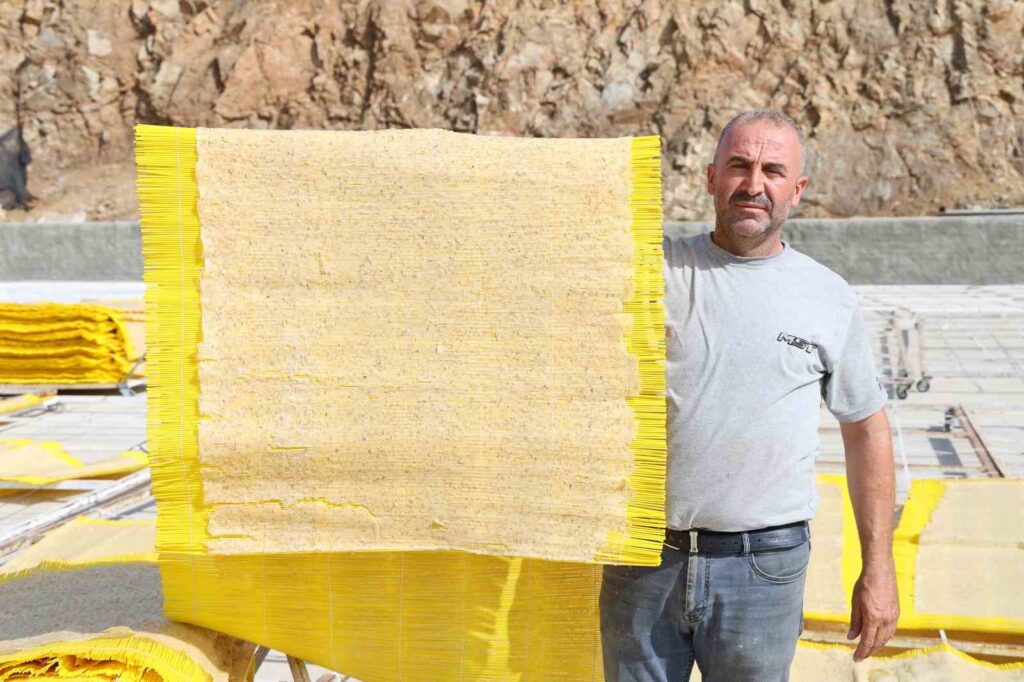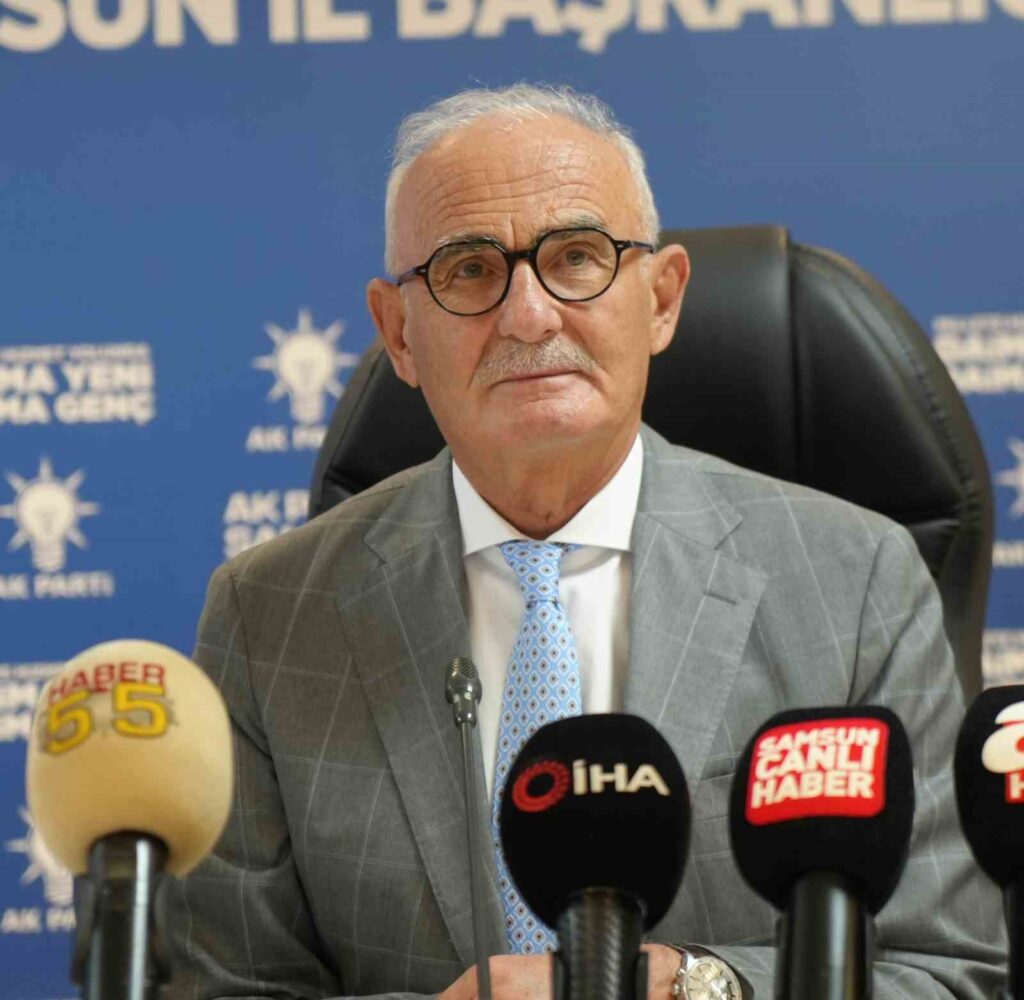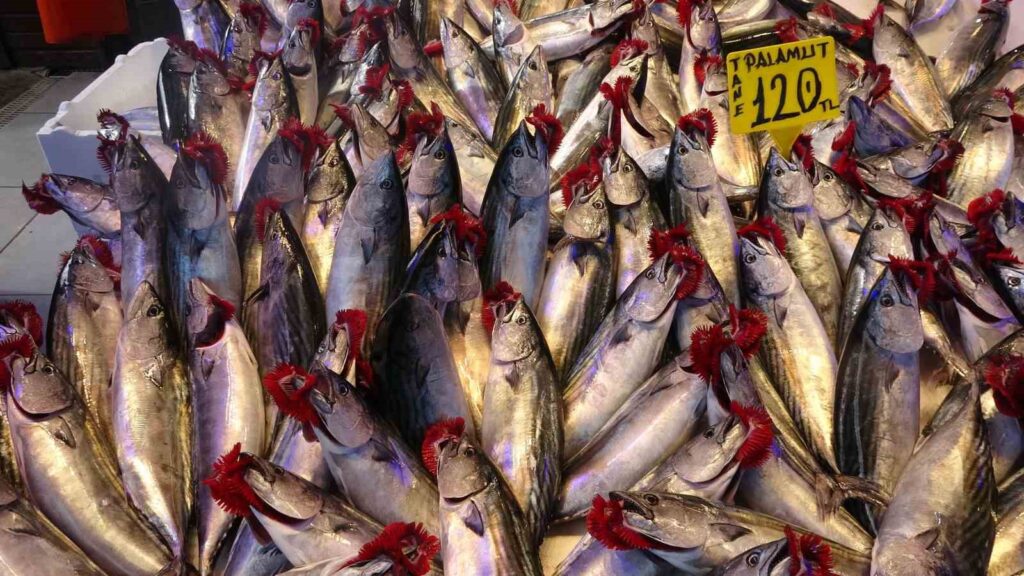Izmir hosts two fairs that bring together taste and technology
This year, the 11th OLIVTECH Fair-2nd Izmir Coffee, Coffee Equipment, and Consumables Fair, is attracting great attention. In the discussions within the scope of the two fairs that bring together taste and technology, ‘The current situation of olive cultivation in the world and Turkey, and …

The 11th OLIVTECH Fair-2nd Izmir Coffee, Coffee Equipment and Consumables Fair, held this year, is receiving great interest. Discussions within the scope of the two fairs which bring together taste and technology included topics such as ‘Current situation and future predictions of olive cultivation in the world and Turkey’ and ‘The 500-year history of Turkish coffee and new generation brewing techniques.’ Izmir Metropolitan Municipality hosted the 11th OLIVTECH-Olive, Olive Oil, Dairy Products, Wine and Technologies Fair organized by İZFAŞ on 23-25 May, as well as the 2nd Izmir Coffee Fair-Coffee, Coffee Equipment and Consumables Fair held on 23-26 May, became an important meeting point for industry professionals, producers, consumers, and enthusiasts. During the OLIVTECH Fair, a panel discussion organized by the Ministry of Trade, International Olive Council, and National Olive and Olive Oil Council was held, focusing on ‘Current situation and future predictions of olive cultivation in the world and Turkey.’ The event, where Jaime Lillo, Executive Director of the International Olive Council, and Dr. Mustafa Tan, Chairman of the National Olive and Olive Oil Council, participated as speakers, was moderated by Çilem Çatalbaş, Head of Management Services Department at the Ministry of Trade, and Didem Baykara, Trade Expert.
Jaime Lillo, the Executive Director of the International Olive Council, who participated in the meeting online, stated, ‘Currently, we have nearly 20 member countries from four continents. Our council, of which Turkey is also a member, also cooperates with observer countries such as the United States, Australia, and Brazil. Moreover, we have an advisory committee established to maintain regular dialogue with the private sector. Over the past 30 years, olive and olive oil production worldwide has doubled. Turkey is one of the five largest consumers and producers of olive oil in the world. However, for the first time in the last 10 years, we are witnessing a decrease in production for two consecutive years. We are already witnessing the impact of climate change on olive oil production. Especially in the Mediterranean region, we see this trend. To cope with unpredictable weather conditions and establish a balance between production and consumption, our Council has been conducting long-standing work on standardization and research. We are also working to support the growth of olive and olive oil production in geographies outside the cradle of the olive tree, the Mediterranean basin.’
‘The number of olive trees has reached 202 million’
Dr. Mustafa Tan, Chairman of the National Olive and Olive Oil Council, stated, ‘As a country, we are built on a legacy. Turkey is the homeland of the olive tree. Knowing this, we should increase our production, consumption, and exports. The National Olive and Olive Oil Council, established in 2007, is the first council established in Turkey. Just like the International Olive Council, the National Olive and Olive Oil Council in Turkey is the umbrella organization where sector stakeholders come together with a common understanding. The target is very important. The target is the pole star of success. In 2007, we set a goal. We aimed to increase the olive cultivation area from 660 thousand hectares to 1 million hectares, and the number of olive trees from 144 million to 180 million. Looking at the number of olive trees on the 100th anniversary of our Republic in 2023, we currently have 202 million. While olive oil production was 115 thousand tons, last year we reached 421 thousand tons, aiming for second place in the world. Our Council’s most honorable goal is to bring the olive tree to its rightful place in its homeland. Our future prediction is to become the number one country in the world. We have a cultural accumulation of thousands of years, as well as tremendous climate and soil conditions. Our olive oil exports have increased from 70 thousand tons to 150 thousand tons. In our country, in addition to our official tree count, 5 million olive saplings are planted every year. Especially in our Southeastern region, in the Southeastern Anatolia Project, we have lands where we can produce enough olive oil for the world. Turkey ranks first in table olives. Quality production is our motto.’
‘Explaining the intricacies of Turkish coffee’
Discussions held during the Izmir Coffee Fair are also attracting great interest from visitors. Atilla Narin, a coffee writer and educator known for his work on Turkish coffee, spoke at a session titled ‘The 500-year history of Turkish coffee and new generation brewing techniques.’ Atilla Narin stated that Turkish coffee is the world’s first high-quality coffee, saying, ‘Coffee has had an important place in the lives of the Turks for 500 years. Although the roots of coffee date back to Ethiopia and its branches extend to Yemen, an Arabian Peninsula country, it was through the Ottomans that coffee gained its identity in the Ottoman territories. From the mid-16th century when coffee entered Turkey, a passionate relationship was established between coffee and the Turks. Although it is almost impossible to grow coffee plants in Turkey, the preparation method developed by the Turks from roasting the coffee beans to pouring them into a cup is known as Turkish coffee.’
‘How Turkish coffee should be prepared’
Explaining how a good Turkish coffee should be made, Atilla Narin said, ‘The temperature of the water, the structure of the coffee, the cezve in which the coffee will be made, the structure of the cup in which it will be placed, and the presentation of the coffee are very important. When making Turkish coffee, the color, fullness, and structure of the foam are taken into account, and a creamy consistency is sought. There should not be large air bubbles. It is important that the grounds do not settle at the bottom and come to the mouth while drinking. Firstly, a good quality bean should be roasted, ground correctly, and fresh, then pour seven grams of coffee into a thick copper cezve, pour approximately 70 milliliters of water by swirling it around the volume of the cup you use, use lukewarm water to prevent excessive bitterness, use purified and clean water, do not use tap water, stir 8-10 times for all the coffee to come into contact with water, cook over medium heat, and do not stir during the brewing process. Remove from the heat without boiling after a brewing time of two and a half minutes, and prefer a cup with a wide bottom and a narrow top. Wait for a minute after brewing for the reaction to cease. After cleaning your palate with a little water, you can enjoy your coffee.’







